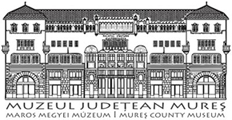Marisia - Maros Megyei Múzeum Évkönyve 29/2. (2009)
Cultură materială
99 Etnografie ASPECTS FROM THE LIFE OF SADDLER JOURNEYMEN FROM EIGHTEENTH-CENTURY SIBIU' Dórin - loan RUS Guilds were professional corporations of craftsmen, merchants, and other professional groups from urban areas, which appeared in Europe in the Meddle Ages and existed until the modern period (in Transylvania, until the nineteenth century). They were organized in Confraternities or associations. Furthermore, guilds established the territorial limits of the market, the quality of products, the number of their members (journeymen and apprentices), work hours, wages, and minimal prices. Because only masters had decision right within guilds, the latter were regarded as organizations of masters; this led to frictions between masters and journeymen as well as the guilds in matters pertaining to the wage system, work hours, etc. Guilds were also an urban phenomenon, their members being free citizens. They were also an instrument for the delimitation of the non-guild competition, for instance for the control of local markets. No product could be sold in town without the seal of the guild. Craftsmen had to be members of the guild in order to be able to sell their products. These institutions aimed at social security and, as it will become evident below, took over several social tasks that are similar to those from the present social security system. They had financial as well as other means for the help of the poor, widows, the sick, children, the unemployed, the children of the deceased confreres, etc. Thus, the social security system of the guild included not only the masters, but also the journeymen, apprentices, and their families. On the other hand, guilds had customs, which were typical of almost every professional branch and which offered the possibility for leisure and socialization to their members. From a political perspective, Transylvanian guilds aimed at participating in the leadership and administration of towns. Here, they often became adversaries of the rich patricians, who enjoyed great wealth and considerable influence due to their commercial activities conducted over vast areas. ' Translated from Romanian by Leonard-Gabriel Ciocan.
